Magister en Entrenamiento Deportivo, Licenciado en Educación Física, con excelentes relaciones interpersonales y amplios conocimientos en educación superior, con experiencia en docencia universitaria, investigación y participación en procesos de proyección social, con diferentes entidades del estado, además de la dirección en Programas y desarrollo de registros calificados, así, como en el acompañamiento en procesos de acreditación de programas de educación superior. Siendo Par Académico Nacional e Internacional. Se ha desempeñado como docente en el área del entrenamiento deportivo y en la investigación. Ha participado como organizador de seis (6) eventos a nivel nacional de investigación en el área de la educación física y el deporte, en asocio con La Red Colombiana de Facultades de Deporte, Educación Física y Recreación, ARCOFADER y el Comité Olímpico Colombiano, COC. (Congreso Colombiano de Investigación en Ciencias del Deporte, 2014-2019) , además de participar como profesor catedrático y director de trabajos de maestría en la Universidad Pedagógica y Tecnológica de Colombia. UPTC, la Universidad Nacional en la Facultad de Medicina, La Universidad de Ciencias Aplicadas y Ambientales, UDCA. En el campo del deporte asociado es presidente de la liga de Balonmano de Bogotá, donde ha podido participar en dos Juegos Nacionales 2017 y 2019.
GRUPOS DE INVESTIGACIÓN: CIENCIAS DEL DEPORTE Y LA ACTIVIDAD FÍSICA
LÍNEAS DE INVESTIGACIÓN: Salud Humana y Animal
PROGRAMA: Ciencias del Deporte
CATEGORÍA MINCIENCIAS: Asociado
NIVEL DE FORMACIÓN: Maestría/Magister
LINEAS DE TRABAJO: Talento Deportivo; Planificación de la Preparación Deportiva; Actividad Física; Control del Entrenamiento Deportivo.
PRODUCTOS DESTACADOS
The Practice of Sport Climbing Contributes to the Improvement of Autonomic Modulation in Young Individuals
Fecha de publicación: 01/04/2017
The Practice of Sport Climbing Contributes to the Improvement of Autonomic Modulation in Young Individuals. JEPonline 2017; 20(2): 84-91. The aim of this study was to evaluate the chronic effects of 3 yrs of sport practice climbing on autonomic modulation by analyzing the HRV using a time/frequency-domain method. Sixteen male subjects were allocated to two groups: (a) sedentary group (SG, n = 9), participants with no or irregular physical activity; and (b) indoor rock climbing group (IRCG, n = 7), participants have practiced indoor rock climbing for 3 yrs with regular practice at 2 times·wk-1 and with similar technical skill. There were statistically significant differences in HRV time and frequency domains (RR interval, SD1, RMSSD, LF, and HF) between the SG group and the IRCG group. However, IRCG showed higher values in all differences. The findings indicate that the long-term practice of sport climbing produces higher HRV in the indoor rock climbers compared to sedentary individuals, thus indicating some cardiovascular benefit
Más información ⇨
- « Anterior
- 1
- …
- 6
- 7
- 8
- 9
- Siguiente »

